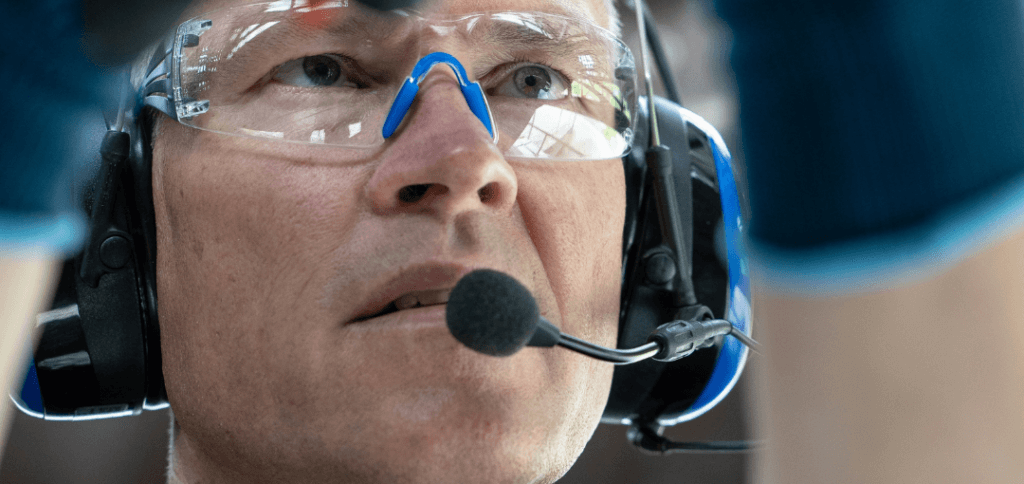Manufacturing plants in New York operate in high-noise environments where employees are regularly exposed to hazardous sound levels. Without proper hearing protection, prolonged exposure can lead to permanent hearing damage, communication challenges, and decreased workplace safety. To mitigate these risks, businesses must implement workplace hearing conservation programs that comply with OSHA regulations while prioritizing employee health.
Why Hearing Conservation is Critical in Manufacturing
Manufacturing environments are among the noisiest workplaces, with equipment, machinery, and processes often exceeding safe noise levels. In fact, the average operating noise level in manufacturing in the US is between 81 and 100 decibels.
According to OSHA, employees exposed to noise levels at or above 85 decibels (dB) over an 8-hour shift must be included in a hearing conservation program. Failure to comply can result in regulatory fines and an increased risk of occupational hearing loss among workers.
Hearing loss is more than just an inconvenience, it can significantly impact safety and productivity. Workers who struggle to hear alarms, equipment malfunctions, or verbal instructions face an increased risk of workplace accidents. Additionally, work-related hearing loss has been linked to cognitive decline and other long-term health complications.
Key Components of an Effective Hearing Conservation Program
To maintain OSHA compliance and protect employees, manufacturing employers should integrate the following components into their hearing conservation programs:
-
Noise Level Monitoring
Employers must regularly assess noise exposure levels in their facilities using sound level meters or dosimeters. Identifying high-risk areas allows for targeted intervention, such as engineering controls or administrative adjustments to reduce exposure.
-
Employee Hearing Tests
Baseline and annual employee hearing tests are essential for tracking auditory health over time. Mobile Health provides both audiometric screenings and audiologic testing, including:
- Pure Tone Test and Audiogram: Identifies the quietest sounds an employee can hear at various frequencies and determines the extent of any hearing loss.
- Auditory Acuity Screening: Measures speech perception at different volumes.
- Hearing Screening vs. Hearing Testing: Audiometric screenings detect potential hearing issues, while audiologic testing provides a detailed analysis to confirm hearing loss and necessary interventions.
Learn more about Mobile Health’s employee hearing tests.
-
Providing Proper Hearing Protection
When noise reduction through engineering controls is not feasible, employers must provide hearing protection devices (HPDs) such as earplugs or earmuffs. Hearing fit testing ensures that HPDs effectively block hazardous noise levels while remaining comfortable for employees.
-
Training and Education
Workers should receive training on the effects of noise exposure, proper use, maintenance, and storage of hearing protection, and best practices for minimizing risk.
-
Recordkeeping and Compliance
Employers must maintain accurate records of noise monitoring results, audiometric test outcomes, and hearing conservation training. Mobile Health’s digital Client Portal simplifies recordkeeping and ensures compliance with OSHA standards.
The Mobile Health Advantage
With clinics all across New York and on-site employee hearing screening capabilities, Mobile Health makes it easy for NY manufacturers to implement OSHA-compliant hearing conservation programs. Our services provide:
- Fast and accurate hearing tests to detect early signs of hearing loss.
- Convenient on-site and in-clinic testing options.
- Real-time digital results through our secure Client Portal.
Prioritize Hearing Health for a Safer Workplace
By implementing a workplace hearing conservation program, NY manufacturing plants can safeguard their workforce, comply with OSHA regulations, and improve overall workplace safety. Protect your employees from work-related hearing loss with Mobile Health’s comprehensive occupational health services.
Get started with an effective hearing conservation program today!
-
 Written by:
Written by:
Tricia Chen-Weis, RNTricia Chen-Weis is a seasoned healthcare professional with a passion for operational excellence and patient care. Joining Mobile Health in August 2019, Tricia quickly made her mark improving patient care and clinical operations as Site Manager in Mobile Health’s 36th Street and Staten Island location. With a bachelor's degree from the University of The West Indies and a nursing degree from Monroe College, Tricia's educational foundation provided her with the knowledge and skills necessary to...
